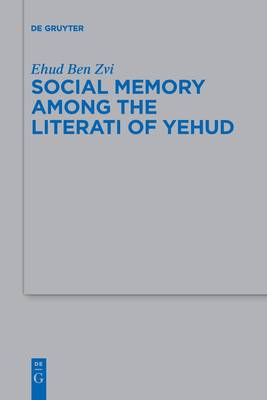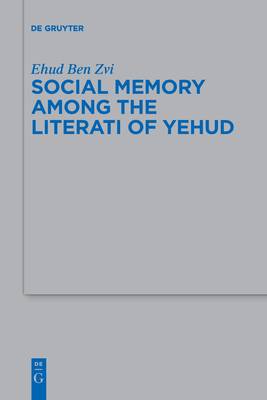
- Afhalen na 1 uur in een winkel met voorraad
- Gratis thuislevering in België vanaf € 30
- Ruim aanbod met 7 miljoen producten
- Afhalen na 1 uur in een winkel met voorraad
- Gratis thuislevering in België vanaf € 30
- Ruim aanbod met 7 miljoen producten
Zoeken
Omschrijving
Ehud Ben Zvi has been at the forefront of exploring how the study of social memory contributes to our understanding of the intellectual worldof the literati of the early Second Temple period and their textual repertoire. Many of his studies on the matter and several new relevant works are here collected together providing a very useful resource for furthering research and teaching in this area.
The essays included here address, inter alia, prophets as sites of memory, kings as sites memory, Jerusalem as a site of memory, a mnemonic system shaped by two interacting 'national' histories, matters of identity and othering as framed and explored via memories, mnemonic metanarratives making sense of the past and serving various didactic purposes and their problems, memories of past and futures events shared by the literati, issues of gender constructions and memory, memories understood by the group as 'counterfactual' and their importance, and, in multiple ways, how and why shared memories served as a (safe) playground for exploring multiple, central ideological issues within the group and of generative grammars governing systemic preferences and dis-preferences for particular memories.
The essays included here address, inter alia, prophets as sites of memory, kings as sites memory, Jerusalem as a site of memory, a mnemonic system shaped by two interacting 'national' histories, matters of identity and othering as framed and explored via memories, mnemonic metanarratives making sense of the past and serving various didactic purposes and their problems, memories of past and futures events shared by the literati, issues of gender constructions and memory, memories understood by the group as 'counterfactual' and their importance, and, in multiple ways, how and why shared memories served as a (safe) playground for exploring multiple, central ideological issues within the group and of generative grammars governing systemic preferences and dis-preferences for particular memories.
Specificaties
Betrokkenen
- Auteur(s):
- Uitgeverij:
Inhoud
- Aantal bladzijden:
- 772
- Taal:
- Engels
- Reeks:
- Reeksnummer:
- nr. 509
Eigenschappen
- Productcode (EAN):
- 9783110762921
- Verschijningsdatum:
- 20/09/2021
- Uitvoering:
- Paperback
- Formaat:
- Trade paperback (VS)
- Afmetingen:
- 156 mm x 234 mm
- Gewicht:
- 1165 g

Alleen bij Standaard Boekhandel
+ 111 punten op je klantenkaart van Standaard Boekhandel
Beoordelingen
We publiceren alleen reviews die voldoen aan de voorwaarden voor reviews. Bekijk onze voorwaarden voor reviews.











